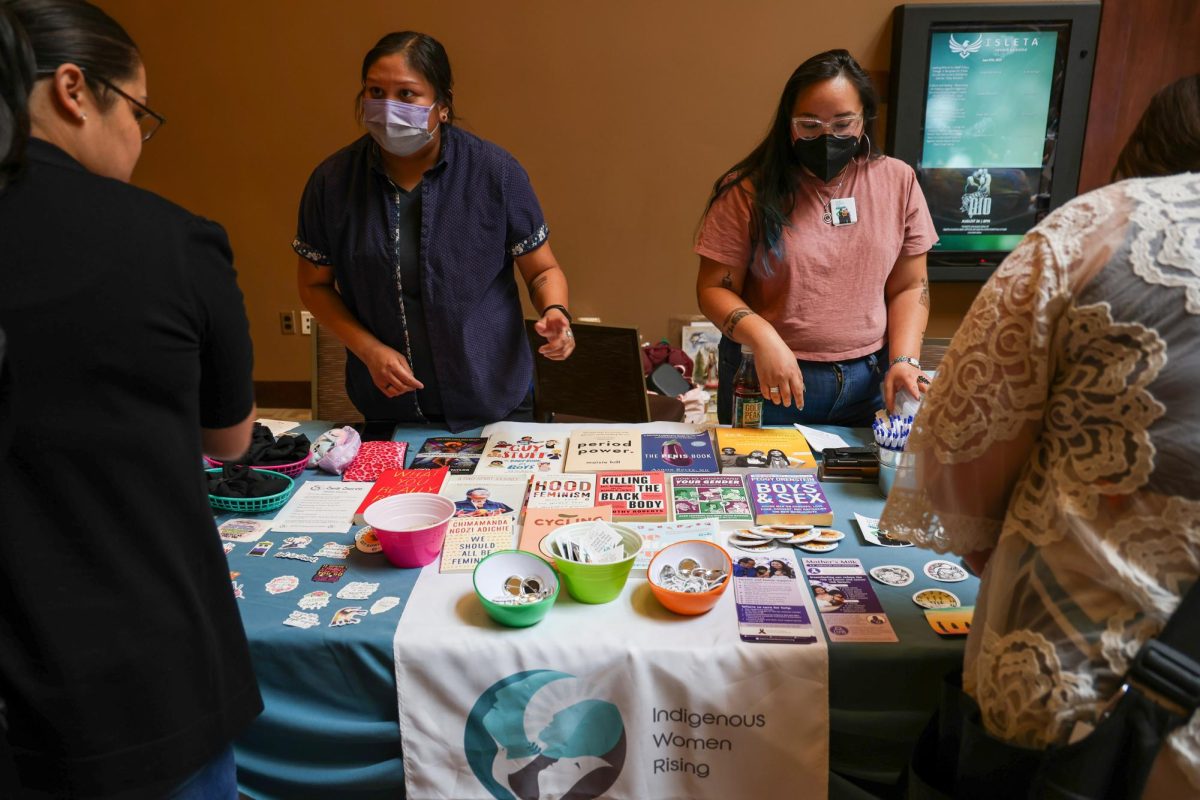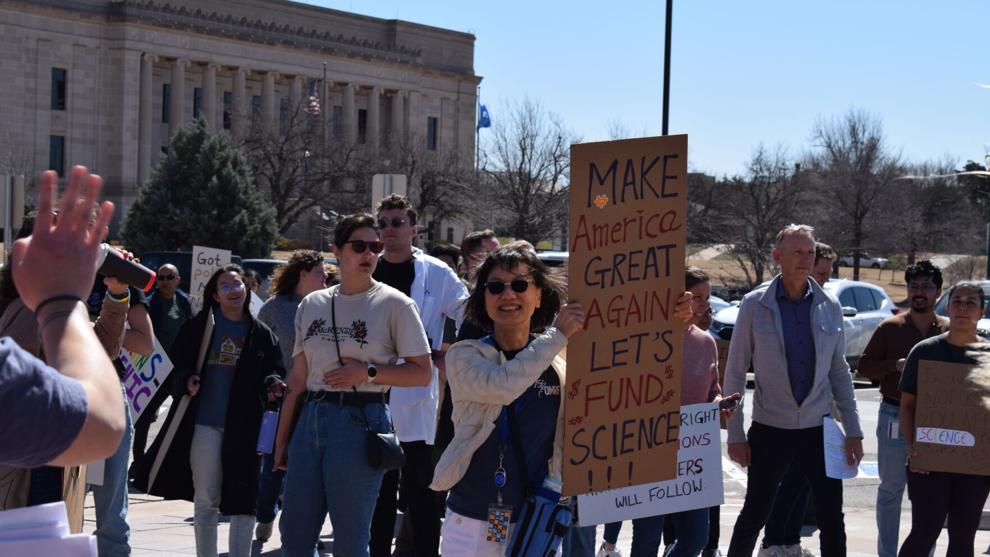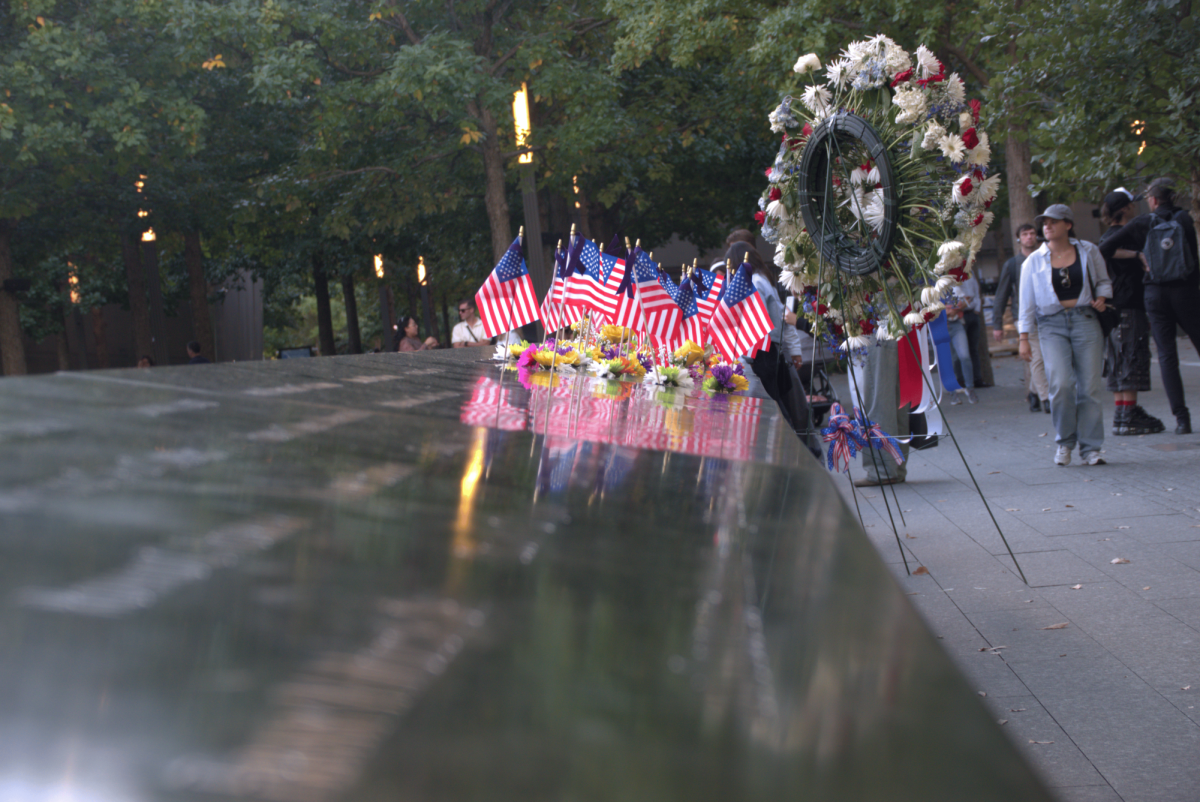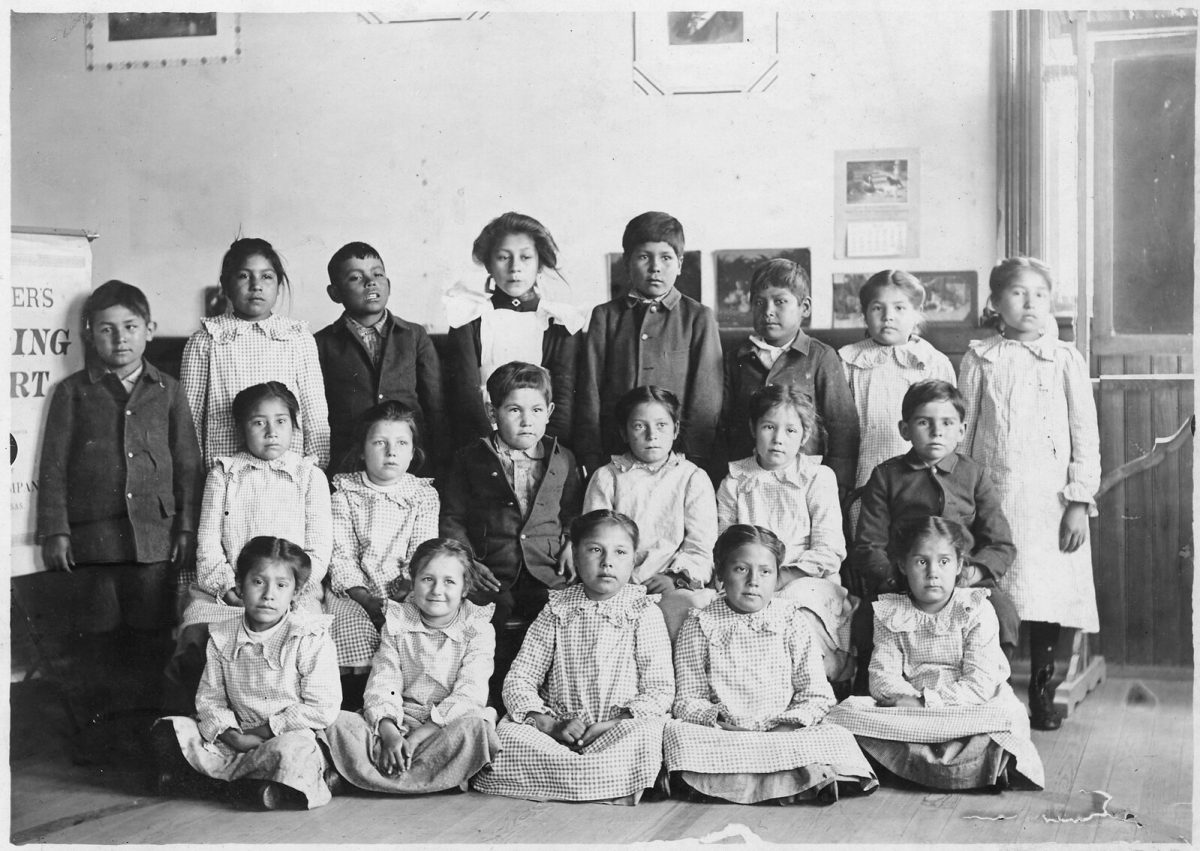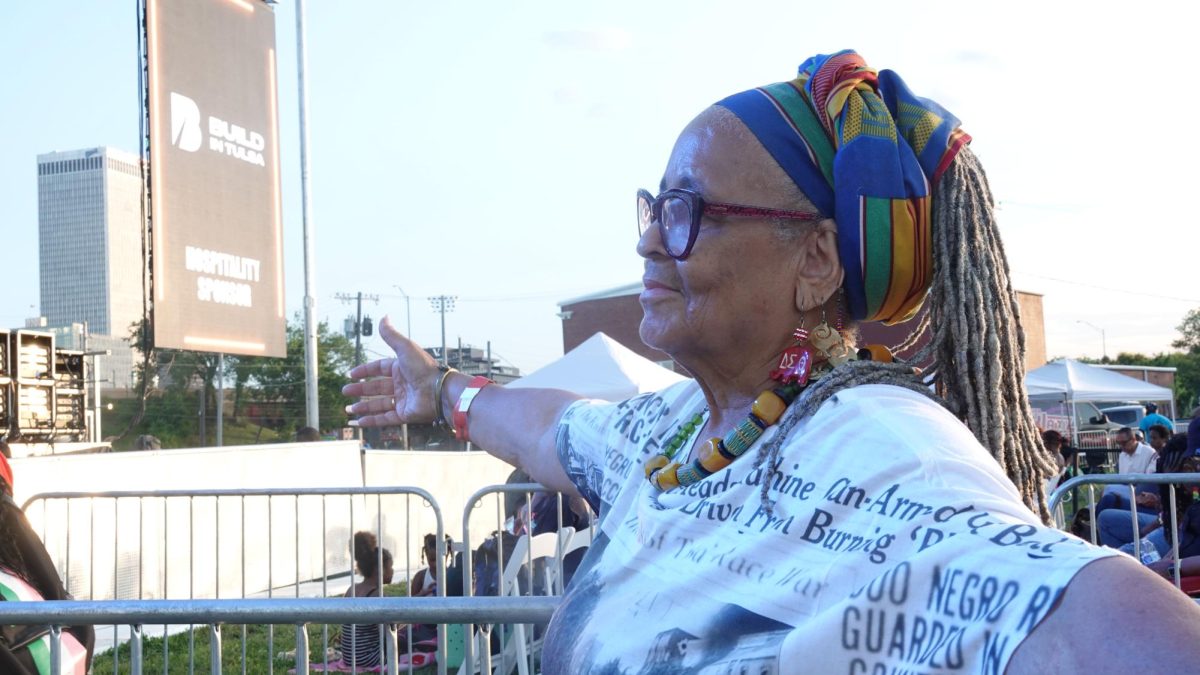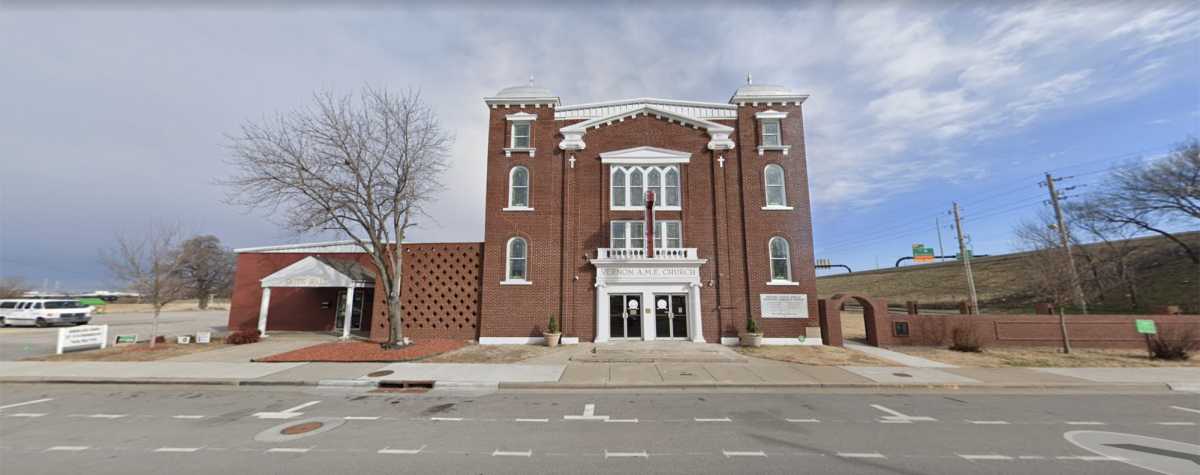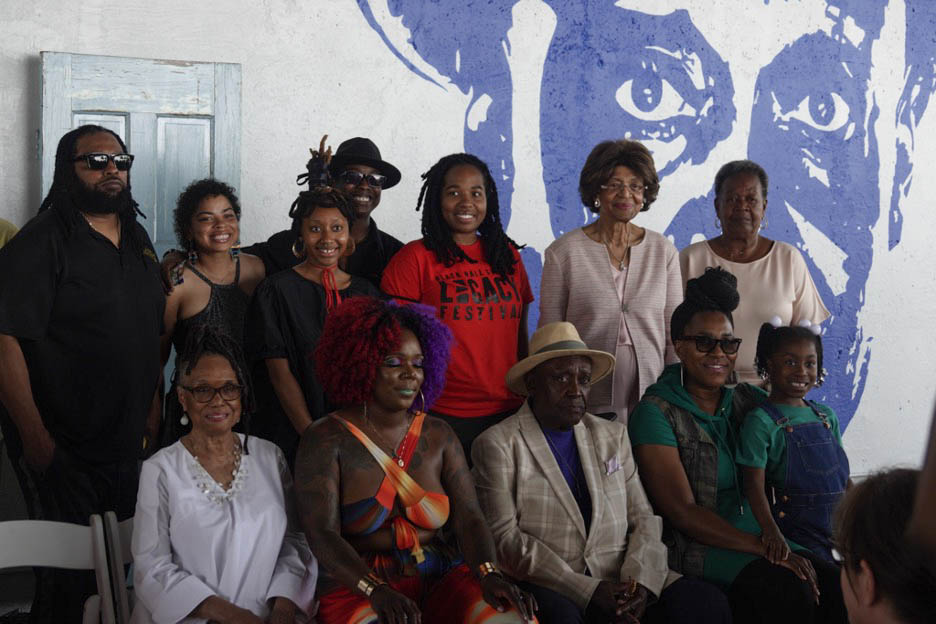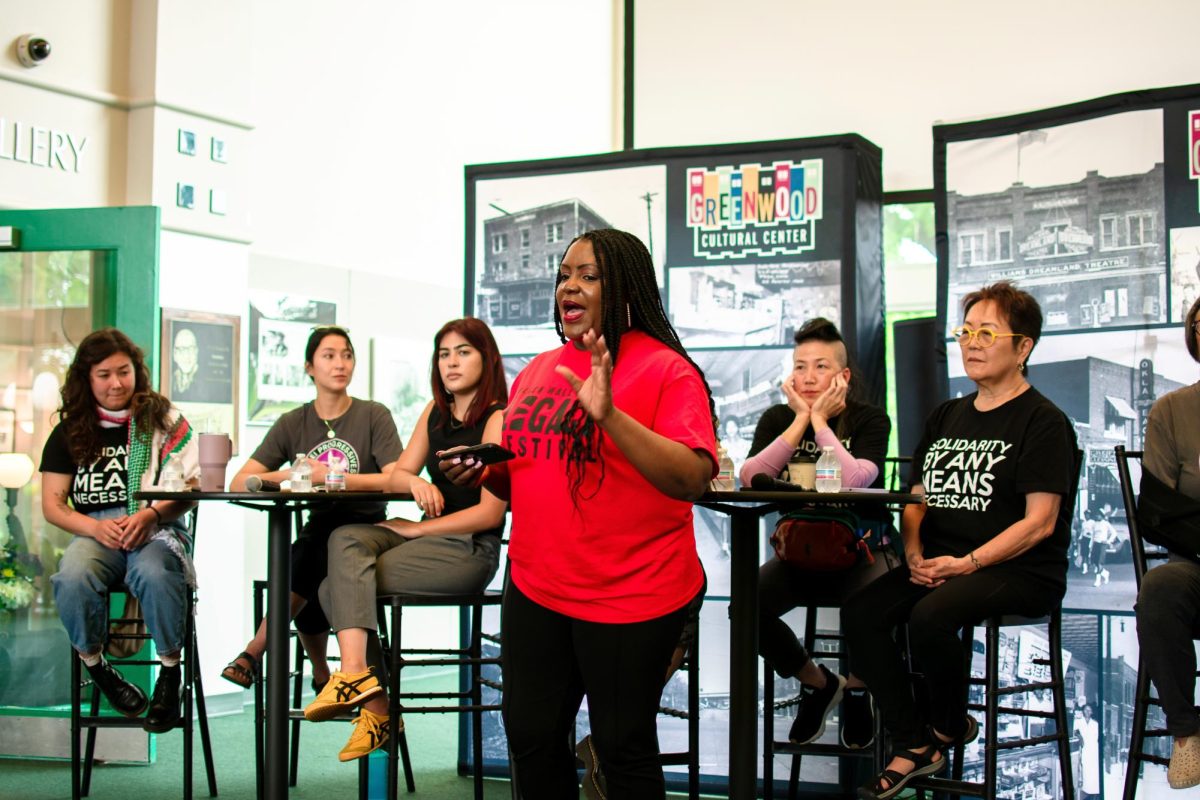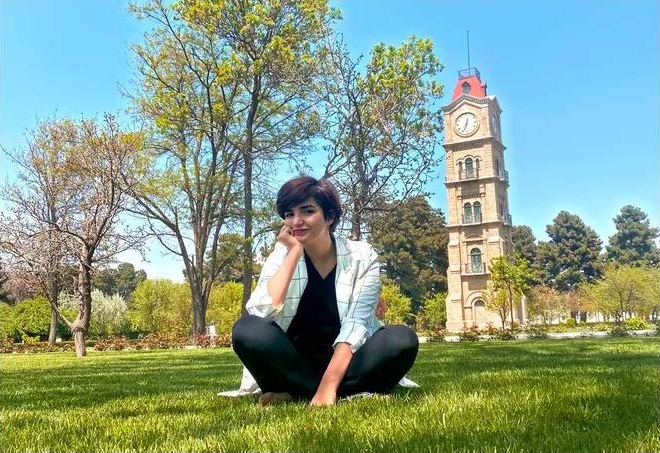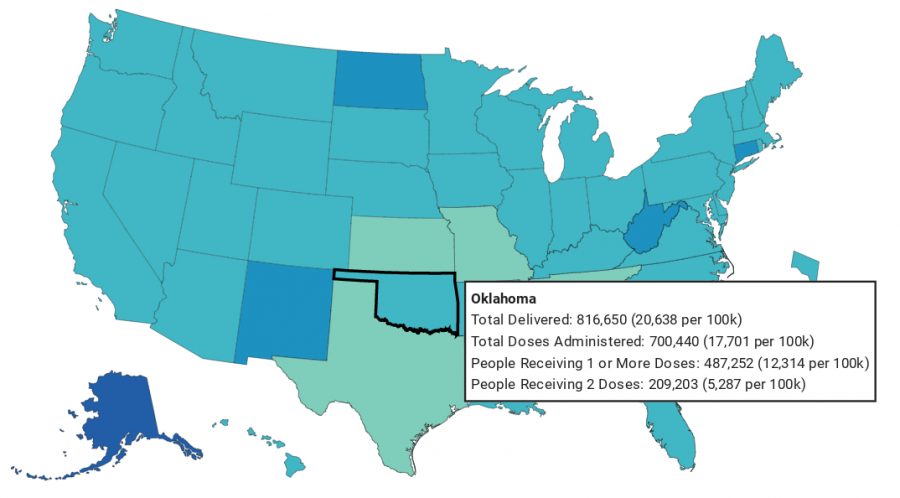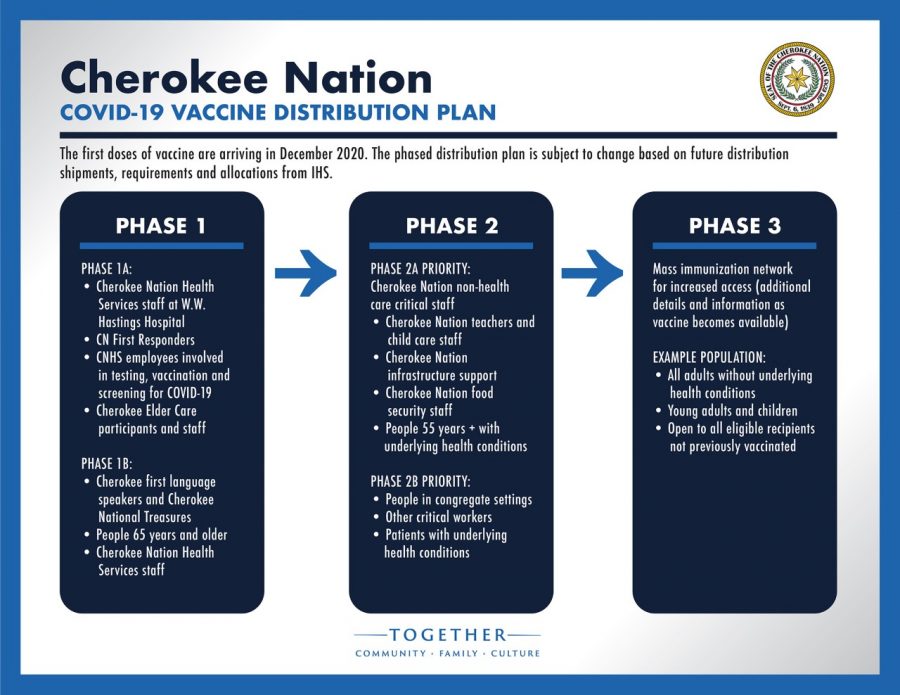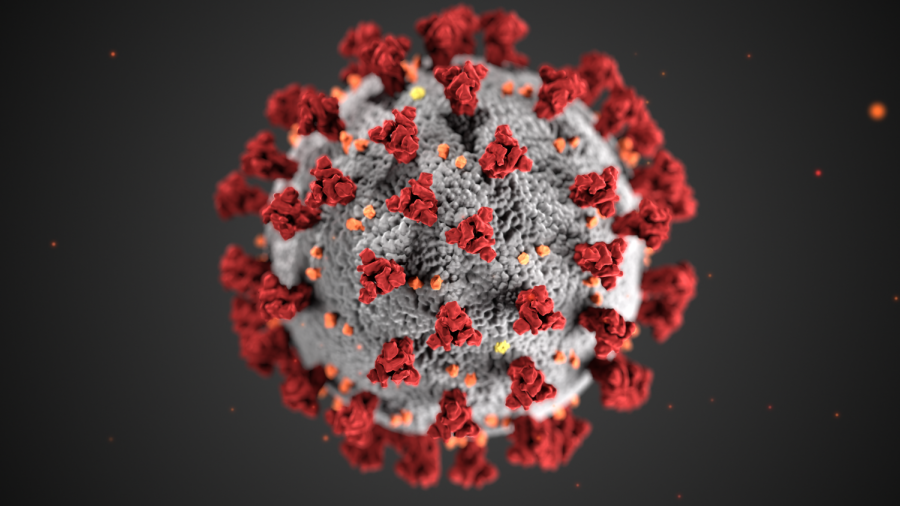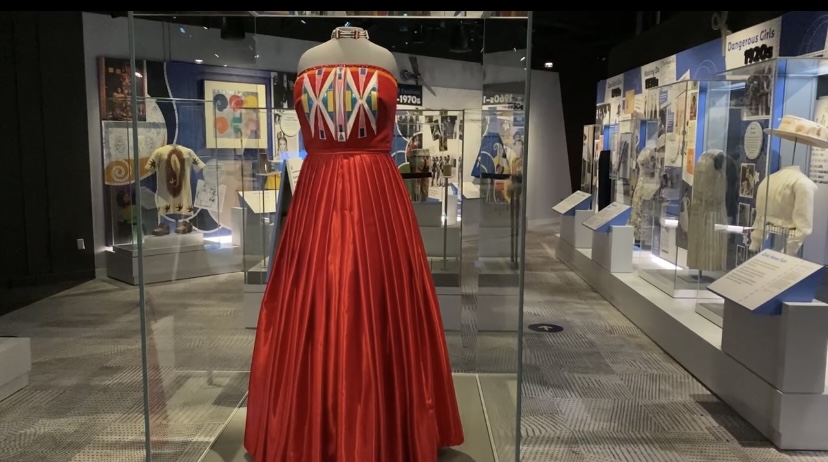ALBUQUERQUE, N.M. – Rachael Lorenzo calls it their “auntie laugh,” a powerful chuckle that lasts long and fills any space. Aunties are prominent figures in Indigenous culture who offer comfort when one needs help.
Aunties answer the phone when no one else does.
That’s what Lorenzo, who is Mescalero Apache, Laguna and Xicana, does as founder of Indigenous Women Rising, a national fund that covers the costs of abortions – and the traditional ceremonies that follow – for Indigenous people.
Since the reversal of Roe v. Wade a year ago, demand for the organization’s services has skyrocketed. The group funded 37 abortions in 2019, 600 in 2022 and over 300 in the first six months of this year. From January to June, it’s spent more to help people than in all of 2022.
“We’re investing more money into … airfare, bus, gas, child care, elder care, after care for the individual who’s getting an abortion,” Lorenzo said. “If there are special needs that they have, we do our best to fund that, as well.”
Indigenous people have been uniquely affected by the end of Roe.
Abortion was never readily available to Native Americans, thanks to a federal law that has prohibited nearly all abortions at Indian Health Service clinics since 1976. That’s always meant traveling long distances for the procedure.
But now states with some of the largest Indigenous populations also have some of the strictest restrictions on abortion: places like North and South Dakota and Oklahoma, home to the Cherokee Nation, the second-largest tribe in the U.S. with over 300,000 enrolled members.
Across the country, some 2 million Native Americans live in the 20 states with laws on the books banning abortion at 18 weeks of pregnancy or earlier, according to a News21 analysis.
“There are clinics closing, providers moving out of those states that we have served or serve, and so we’re seeing more people need to travel from very rural states in order to get abortion care,” Lorenzo said.
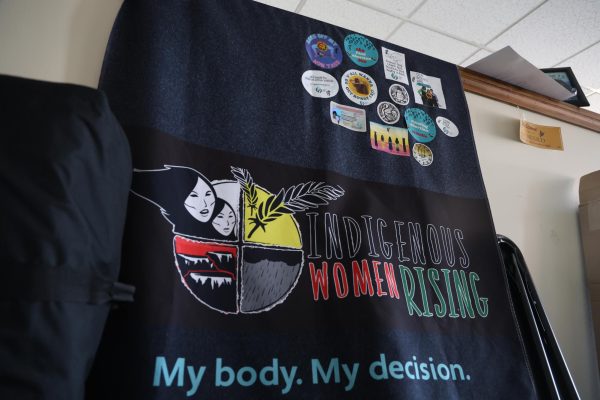
Add into the mix disproportionate rates of sexual assault and unintended pregnancy, a crisis of missing and murdered Indigenous women, high rates of maternal mortality, and poor access to preventative care and contraception, and the end of Roe has made a bad situation much worse.
“Roe has never been accessible for Native women,” said Lauren van Schilfgaarde, a tribal law specialist at UCLA who has studied abortion care in Indigenous communities. “When you add in the rates of violence and the complete gutting of tribal governments’ abilities to respond, you have a real dangerous recipe in which Native women have a lack of reproductive health.
“Dobbs has exacerbated that.”
‘Lowest-hanging fruit’
The federal government provides health care to Native people as part of the treaty agreements for seized land. Those living on tribal lands or in big cities can use the Indian Health Service, or IHS, an agency within the U.S. Department of Health and Human Services that covers 2.6 million Native Americans and Alaska Natives across 574 federally recognized tribes.
However, the system is perpetually underfunded, forcing facilities to limit the services they provide.
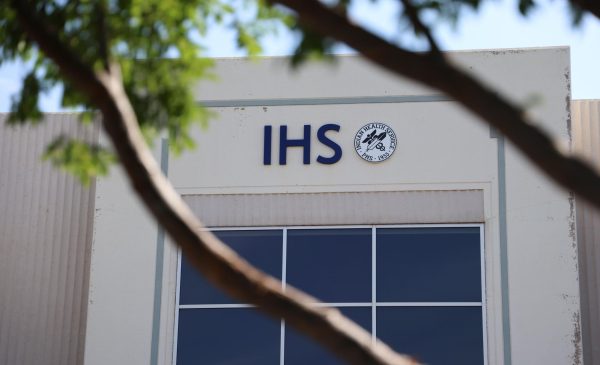
On tribal lands, the clinics can be hours away by car – a trek that comes with a price tag for Native Americans, a quarter of whom live in poverty. And once they arrive, the clinic may or may not have gynecological or obstetric services.
“Reproductive health care has always been considered, for some reason, outside of the mainstream,” said van Schilfgaarde, who is Cochiti. “It’s always the lowest-hanging fruit for budget cuts.”
The Hyde Amendment further restricted reproductive access for Indigenous women.
First approved by Congress in 1976, it banned the use of federal funds for abortion except to save the life of the mother. Exceptions were later added for rape and incest. While the measure was not directed at Native people, they are among those most affected because they rely on federal clinics.
And exceptions for abortion are rarely granted, even though Indigenous women are 2.5 times more likely to be raped than other women in the U.S., and some 34% of Native American women report having been raped at some point in their lives.
One study published in the American Journal of Public Health found that from 1981 to 2001, IHS performed 25 abortions. A 2002 study published by the Native American Women’s Health Education Resource Center found that 85% of IHS facilities did not have abortion services available or did not refer to abortion providers – even for women in permitted circumstances.
Dr. Antoinette Martinez, who is Chumash, is a family medicine and obstetrics provider at United Indian Health Services, a federally funded clinic serving reservations in Humboldt and Del Norte, two northern California counties.
She can’t provide abortions because of the Hyde Amendment and has seen firsthand the effect of that.
“It really does create another hoop for young and middle-age Native women who do not desire pregnancy, who live either in a rural area or in a remote area,” she said. “Sometimes they come down from three hours away for care.”
Before the COVID-19 pandemic, Martinez also worked part time at a Planned Parenthood clinic in Eureka, California, where she provided abortions to women of all ethnicities and ages.
“I knew the hardships in getting there,” she said of her Indigenous patients. “Sometimes they were very, very forthright about the difficulties that were going on in their life and the obstacles in getting to Planned Parenthood – both financially and physically – because of travel distances due to rural locations or other issues such as child care.”
In Oklahoma City, Trust Women was a go-to clinic for Indigenous patients seeking abortion care and partnered with Native organizations such as Indigenous Women Rising. Nearly 10% of Oklahoma’s population is Indigenous.
Now, with Roe overturned and a near-total abortion ban in place in the state, the facility’s treatment rooms hold unused chairs, plastic folding tables and boxes of medical supplies stacked in a corner collecting dust.
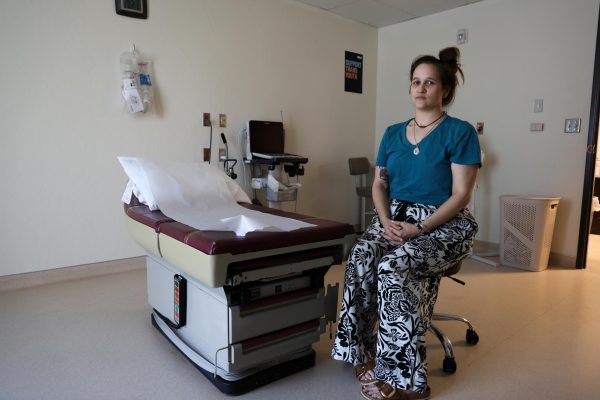
States neighboring Oklahoma – including Texas, Arkansas and Missouri – also have restrictive abortion policies. New Mexico is the nearest state that allows unrestricted abortion, and it’s an eight-hour drive from Oklahoma City to Albuquerque.
“It’s obviously a really egregious violation of people’s rights and dignity to not be able to access health care where they live,” said Kailey Voellinger, former clinic director of Trust Women in Oklahoma City.
DakotaRei Frausto, who is Mescalero Apache and lives in San Antonio, discovered the complications of having to seek an abortion out of state when, at 17, they learned they were eight weeks pregnant. It was March 2022, six months after Texas enacted a six-week abortion ban.
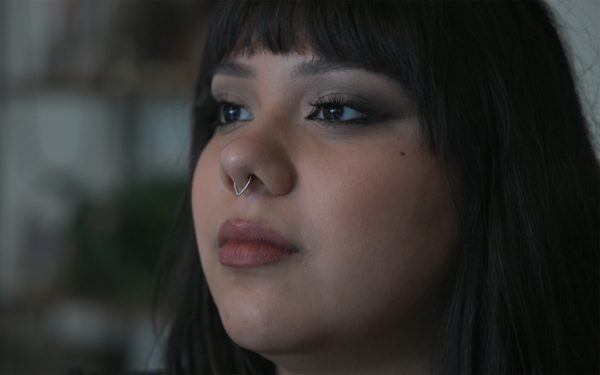
Frausto’s mother found someone to loan them a car for the only option – a 700-mile, 11-hour drive to New Mexico, where clinics were so overwhelmed Frausto had to wait a month for an appointment.
They said the experience drove them to speak out.
“My whole entire life of being an Indigenous woman, I’ve felt silenced. I’ve felt like I was told to be submissive and quiet and small and just not take up space,” Frausto said. “And I was like, I can’t let this stigma – I can’t let racism and sexism – hold me back from talking about an issue that needs to be talked about.”
Frausto started a chat room, which now has more than 500 members from around the world, to debunk myths about abortion, give advice and connect individuals with resources. Frausto said it’s become a community where people feel safe sharing their own abortion stories.
“I want these people to focus on their health, focus on their family and focus on being OK,” they said. “I want to be there to take that weight off of other people when there wasn’t someone to take that weight off of me.”
Other Indigenous reproductive justice advocates are also stepping up to help – establishing support networks and reclaiming traditional knowledge about reproductive health, including traditional birthing practices.
‘We’ll find a way’
Lorenzo founded Indigenous Women Rising after their own emergency abortion 10 years ago. At the time, they were a 23-year-old graduate student at the University of New Mexico and parent to a toddler.
The doctor told Lorenzo they had an unviable pregnancy but would have to “wait it out.”
“I didn’t know that I could get an abortion for a situation like this. I just waited it out for a few months, until I started having a miscarriage. Having to go to the emergency room, where I was humiliated by providers … it was just a really awful, dehumanizing experience.”
Lorenzo figured there must be other Native people with similar experiences who needed help.
The fund’s first clients were Navajo, who continue to be the largest group it serves. “We serve all Native folks, whether they are on or off a reservation, whether or not they’re enrolled,” Lorenzo said.
Jonnette Paddy, a member of the Navajo Nation, oversees the organization’s abortion fund and said that post-Roe, most states served are those with some kind of abortion restrictions.
“So we assist in Arizona. We assist in Oklahoma, North and South Dakota, Texas,” Paddy said.
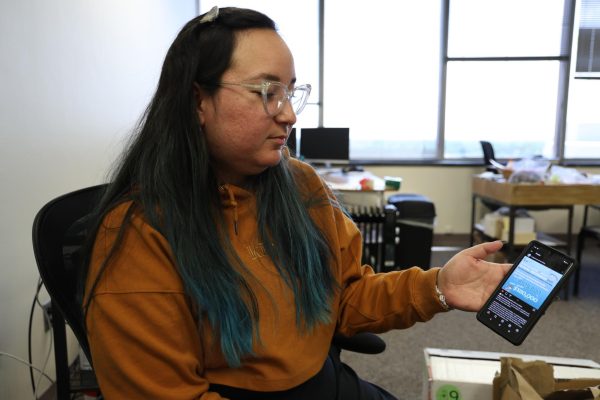
In just the first six months of 2023, the fund has distributed $180,000 to support patients. That’s compared with $110,000 in all of 2022.
The end of Roe has left Americans now experiencing what Native people have lived for decades, Lorenzo said. Abortion care – “now it’s an emergency.”
“It should have always been an emergency about who was getting the least care, how we can create equity and make sure that no one is without care,” they said.
Indigenous Women Rising is one of the bigger community groups in the abortion realm but not the only one.
Following an outbreak of youth suicides in Indian Country in 2015, Sarah Adams, who is Choctaw and lives in Moore, Oklahoma, co-founded Matriarch to provide suicide prevention education and resources to the community. She recalls parents telling her they had called IHS for help, only to be told the next appointment was months away.
Today, the organization provides critical services – including help with abortion care – that the tribal government is unable or unwilling to provide. Its members help people schedule appointments at out-of-state abortion clinics, fund procedures and assist with everyday needs, such as child care and food.
She noted that the lack of abortion access for Indigenous women has not even come up among most tribal leadership, which is predominantly male.
After Roe was overturned, the Suquamish Tribe in Washington state was the only one to speak out publicly, issuing a statement saying, “Our bodily integrity and our right to make decisions over whether or when we bear children are foundational to human dignity.”
“We’ve always known that the community is really the only thing that is protecting us, and that we’ll find a way,” Adams said. “We’ll find ways to make sure that we get the health care that we need.”
‘Safe and sacred’
One of those ways is a return to traditional practices.
Melissa Rose lives in Santa Fe. She’s been a midwife for 10 years, but with the end of Roe v. Wade, she has seen her role in reproductive justice change.
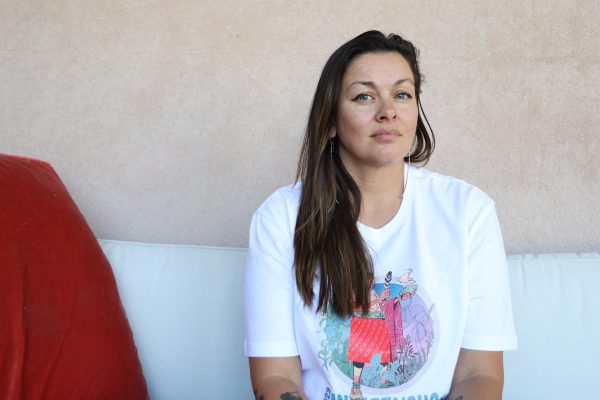
Now, self-managed abortion is also part of her practice. Between restrictive state laws and the availability of the abortion pill and traditional herbs used for centuries to end pregnancies, people are choosing home abortions just as they would choose a home birth, she said.
“In our communities, traditionally, we would just do that at home – in a safe and sacred way,” she said. “And so that’s not different now.”
Abortion has always been a natural part of pregnancy in Native culture, where women are viewed as sacred and, before colonization, had sovereignty over their bodies.
“Self-managed abortion is traditional,” said Rose, who is Akwesasne Mohawk and from the tribe’s territory in northern New York and Canada. “The first abortion that ever happened on the Earth was self-managed. We knew what plants to take, and we would stay home.
“We’ve only been a handful of generations separated from this being the norm. … And in some families, this knowledge has been really carefully protected and passed down and, luckily, we have all of that still.”
In Indigenous culture, unlike the western debate, there is no conflict between managing a pregnancy or ending one, she said.
“From a provider standpoint, the treatments are exactly the same for a miscarriage or an abortion,” Rose said. “And midwives have always helped people with those pregnancy transitions.”
Native people sometimes choose to have ceremonies to honor the loss and bring closure by burying the tissue. But in states with strict bans, burying remains could bring criminal charges.
North Dakota has some of the country’s strictest abortion laws. Red River Women’s Clinic used to provide abortions in Fargo but last year moved to Moorhead, Minnesota, where abortion is still legal.
Clinic Director Tammi Kromenaker said her patients include Native Americans from North Dakota, South Dakota and Minnesota who often learn about the clinic by word of mouth.
This year an Indigenous woman asked if she could take home the tissue from her abortion because she wanted it blessed by a medicine man. In Minnesota, working with a funeral home, she could.
“In North Dakota, we couldn’t have done that,” Kromenaker said. “It was just so nice to be able to accommodate that request … to honor somebody’s cultural wish.”
Tori Gantz and Kevin Palomino contributed to this report.
This report is part of “America After Roe,” an examination of the impact of the reversal of Roe v. Wade on health care, culture, policy and people, produced by Carnegie-Knight News21. For more stories, visit https://americaafterroe.news21.com/.
The participation of Keyes and Palomino was funded in part by a grant from Oklahoma City-based Inasmuch Foundation.

